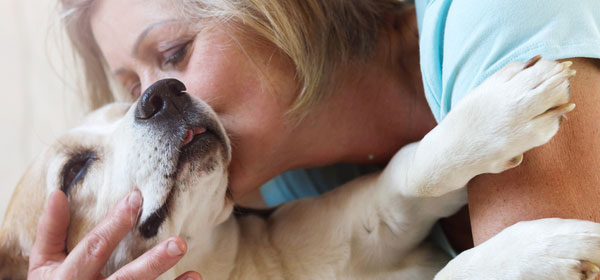Australia has one of the highest rates of pet ownership in the world with about 63 per cent of households having at least one pet. That means there are about 25 million pets in Australia!
So we obviously love our pets. But don’t assume they are a risk-free addition to the household.
Q. What do toxoplasmosis, leptospirosis, corona, giardiasis, bartonellosis, psittacosis and lyme disease all have in common?
A. They are all illnesses you can get from pets. And there are others, but we’ll get to them later.
Now, before you rush outside and start digging your pet’s grave, you should know that you are far more likely to catch an illness from a human than you are from a pet.
That doesn’t mean you shouldn’t be careful. Wash your hands after touching a pet, especially one you’re not familiar with. Don’t touch animal faeces – of course – and if you do, wash your hands immediately. And if you see a dog madly licking a kid’s face, stop it because you can never assume that a dog’s saliva is harmless.
Diseases that can be transmitted from animals and birds to humans are called zoonotic diseases and there are many of them.
Some, such as bird flu, can be fatal. Researchers estimate that around 2.2 million people die from zoonotic diseases each year, most of the deaths in low and middle income communities.
A lot of these diseases come from animals you aren’t likely to have running around in your suburban yard – chickens, pigs, cows, goats and camels. A number of others can come from wildlife, so be cautious about cuddling a quokka or hand-feeding a goanna.
Of the numerous health issues that pets can create, perhaps the best known are the various worm varieties – whip, hook, tape and round – along with salmonella and rabies.
Regular visits to the vet can give your animal the best chance possible of not contracting any of these conditions and passing them on to you, but it can happen.
So what are the telltale signs?
Ringworm
This is not a worm, and gets its name from its circular appearance on the skin. Transmitted by direct contact with animals carrying it. Ringworm is most commonly found in infants and is not an uncommon issue in crèches. Look for itching. Antifungal creams available from chemists will cure the problem, but see a doctor if it continues.
Tapeworm
If you see your animal scraping its bottom along the ground, it’s possible it might have tapeworm. If your dog vomits, check to see if tapeworms are visible. Tapeworm can be transmitted to humans via contact with faeces. Symptoms in humans include tiredness, stomach cramps and diarrhoea. A doctor can prescribe medicines to be taken orally, while your dog will need veterinary attention.
Hookworm
Animals carrying hookworm can pass it to humans. Children are more vulnerable. Mild infection results in itchiness, while several worms can result in stomach issues, but cat and dog hookworms rarely develop to adulthood in humans. Deworm your pets regularly.
Salmonella
Not common in Australia. People can become infected if they transfer faeces containing salmonella bacteria from their hands to their mouths. Symptoms include fever, diarrhoea and loss of appetite. To treat, increase intake of normal daily fluids and avoid foods high in sugars and fats. Seek medical advice if you have concerns.
Rabies
This is spread by an infected animal scratching or biting a human and, while not present in Australia, it should be noted that about 17,400 people worldwide died from rabies in 2015. Seek immediate medical attention if you are bitten or scratched by a strange animal.
Campylobacter
This is mainly spread to humans by eating or drinking contaminated food (mainly poultry), water or unpasteurised milk. It can also be spread via the hands of an infected people, or from contact with cats, dogs and farm animals that carry the bacteria. Symptoms include stomach cramps and fever. Rest and increased fluids are recommended treatments, and recovery may take a week or two. A doctor may prescribe antibiotics in the worst cases.
Are you careful about washing your hands after handling pets? Have you ever caught anything from a pet?
Disclaimer: This article contains general information about health issues and is not advice. For health advice, consult your medical practitioner.
Related articles:
Dogs can detect cancer
Pets welcome too
Top 10 unusual pets

